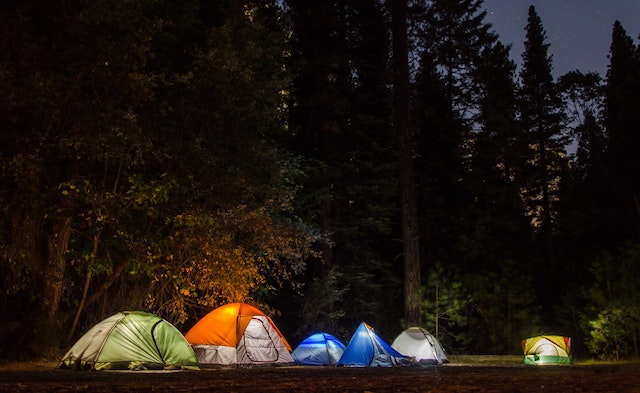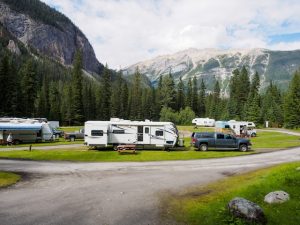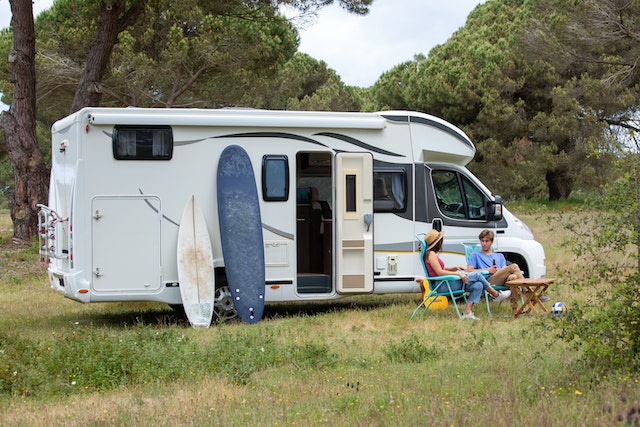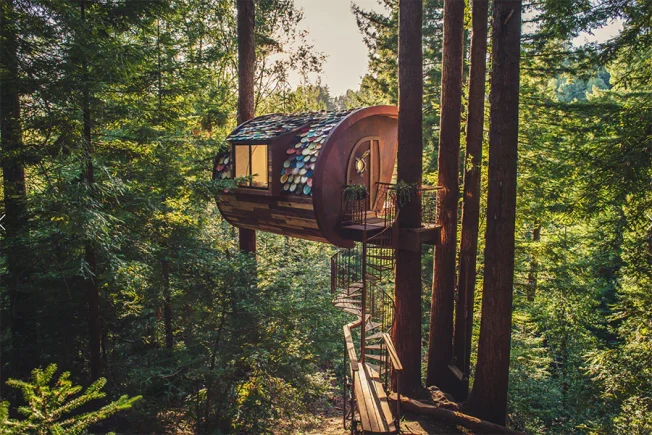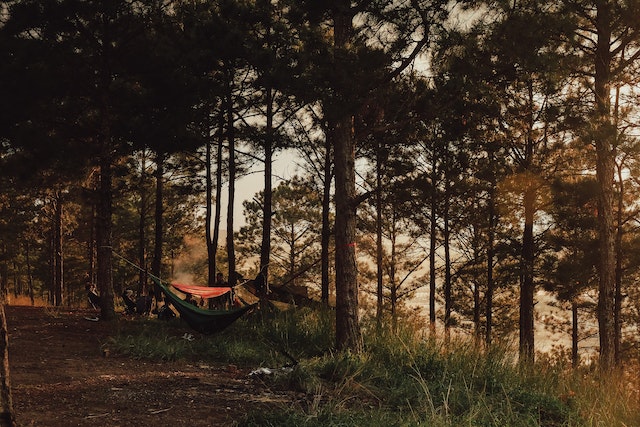Did you know that camping in state parks is a popular activity for over 40 million Americans each year? It’s no wonder why – there’s something truly special about immersing yourself in the beauty of nature and disconnecting from the demands of everyday life. Whether you’re a seasoned camper or just starting out, this article will provide you with valuable tips and advice to make your camping experience in state parks unforgettable.
From selecting the perfect campsite to essential gear and equipment, we’ll help you prepare for your adventure. And what’s camping without delicious campfire cooking? We’ll share some mouthwatering recipes and cooking tips to satisfy your taste buds. Safety is paramount in the wilderness, so we’ll also provide you with crucial information on staying safe and prepared. But camping isn’t just about setting up camp – it’s about embracing the outdoors and exploring the trails. We’ll guide you through hiking and discovering hidden treasures along the way.
So, get ready to embark on a journey of belonging and connection with nature as we dive into t he world of camping in state parks.
he world of camping in state parks.
1. Selecting the Perfect Campsite
When it comes to selecting the perfect campsite, you’ll want to keep in mind that some sites offer breathtaking views of the surrounding nature while others provide convenient access to hiking trails and other recreational activities. To truly feel a sense of belonging in nature, it’s important to choose a campsite that aligns with your preferences and interests.
For those seeking tranquility and peace, a campsite with a view of a serene lake or a majestic mountain range might be the ideal choice. Imagine waking up to the soft sounds of birds chirping and the gentle rustling of leaves, with the beauty of nature right outside your tent. It’s a feeling of being connected to something greater than yourself.
On the other hand, if you’re someone who loves adventure and exploration, a campsite near hiking trails and other recreational activities would be perfect for you. Picture yourself embarking on thrilling hikes, discovering hidden waterfalls, and encountering wildlife along the way. The sense of accomplishment and the adrenaline rush you’ll experience will make you feel like you truly belong in the great outdoors.
No matter what type of campsite you choose, remember that each one has its own unique charm and offers a different experience. Take the time to research and explore the options available, and you’ll find the perfect campsite that will make you feel at home in nature.
2. Essential Gear and Equipment
Before setting off on your outdoor adventure, make sure you have all the necessary gear and equipment to fully immerse yourself in nature’s embrace. It’s important to be prepared so you can enjoy your camping trip to the fullest.
First and foremost, you’ll need a sturdy tent that can withstand the elements and provide you with a cozy shelter at night. Don’t forget your sleeping bag and sleeping pad for a comfortable night’s sleep under the stars.
A camping stove and cookware are essential for preparing delicious meals in the great outdoors. Pack some lightweight, quick-drying clothes that are suitable for the weather conditions. Don’t forget to bring a hat, sunscreen, and insect repellent to protect yourself from the sun and pesky bugs.
A good quality backpack is a must for carrying all your gear and supplies. And of course, don’t forget to bring a water bottle to stay hydrated during your adventures. Lastly, make sure to pack a flashlight and extra batteries for those late-night trips to the bathroom.
With the right gear and equipment, you’ll be ready to embrace the wonders of nature and create lasting memories in the great outdoors.
3. Campfire Cooking Tips and Recipes
Get ready to tantalize your taste buds with some mouthwatering campfire cooking tips and delicious recipes that will take your outdoor dining experience to the next level. Cooking over a campfire can be a fun and rewarding experience, allowing you to enjoy the great outdoors while savoring tasty meals. To make the most of your campfire cooking adventure, here are some tips to keep in mind:
- Choose the right cookware: Opt for durable and lightweight cookware that can withstand the heat of the campfire. Cast iron pans and Dutch ovens are great options for cooking over an open flame.
- Plan your meals in advance: Before heading out on your camping trip, plan your meals and make a shopping list. This will ensure you have all the ingredients you need and save you time and stress while camping.
- Practice fire safety: Always make sure your campfire is in a designated fire pit and never leave it unattended. Use long-handled tools and gloves to avoid burns while cooking.
- Get creative with your recipes: Campfire cooking is all about getting creative. Try out some simple yet delicious recipes like foil packet meals, campfire nachos, or grilled veggies. Don’t be afraid to experiment and create your own unique campfire dishes.
| Tips | Recipes |
|---|---|
| Choose the right cookware | Foil packet meals |
| Plan your meals in advance | Campfire nachos |
| Practice fire safety | Grilled veggies |
| Get creative with your recipes |
With these campfire cooking tips and recipes, your outdoor dining experience will be elevated to a whole new level. So gather around the campfire, enjoy the company of your loved ones, and savor the delicious flavors of your campfire creations. Happy cooking!
4. Staying Safe and Prepared in the Wilderness
Staying safe and prepared in the wilderness is crucial for any outdoor adventure, as the saying goes, ‘Better safe than sorry.’
When you venture into the great outdoors, it’s important to be well-equipped and knowledgeable about potential dangers. First and foremost, make sure to pack the essentials: a first aid kit, a map and compass, and a reliable flashlight. These items will help you navigate and handle any minor injuries that may occur.
Additionally, it’s important to familiarize yourself with the area you’re camping in. Research the local wildlife and their behaviors, so you can avoid any potential encounters. Remember, you’re a guest in their home, so respect their space. Be sure to store your food properly, as to not attract any unwanted visitors.
Another tip for staying safe in the wilderness is to let someone know your itinerary. Share your plans with a trusted friend or family member, so they can keep track of your whereabouts. It’s always helpful to have someone looking out for you, even from afar.
Lastly, trust your instincts. If something doesn’t feel right, it probably isn’t. Listen to your gut and take appropriate action. Remember, the wilderness is a beautiful and exhilarating place, but it can also be unpredictable. By staying prepared and making safety a priority, you’ll have a more enjoyable and worry-free camping experience.
5. Embracing the Outdoors: Hiking and Exploring Trails
Venturing into the wilderness and immersing yourself in the beauty of nature can be a transformative experience, especially when you embrace the thrill of hiking and exploring trails. It’s a chance to disconnect from the chaos of everyday life and connect with the serenity of the outdoors.
To make the most of your hike, here are three things to keep in mind:
- Choose the right trail: State parks offer a variety of trails, ranging from easy walks to challenging treks. Consider your fitness level and the time you have available. Pick a trail that aligns with your abilities and interests. Always check the trail conditions and weather forecast before setting off.
- Pack the essentials: When hitting the trails, it’s important to be prepared. Bring a backpack with water, snacks, a map, a compass, and a first aid kit. Wear appropriate footwear and dress in layers to adapt to changing weather conditions. Don’t forget sunscreen and insect repellent to protect yourself from the elements.
- Leave no trace: As you explore the trails, remember to leave them as you found them. Respect the environment by staying on designated paths and disposing of your trash properly. Avoid disturbing wildlife and be mindful of other hikers. By leaving no trace, you ensure that future generations can also enjoy the beauty of these natural spaces.
So lace up your hiking boots, grab your gear, and hit the trails. The great outdoors is waiting for you to embrace its wonders and find your place of belonging.
Frequently Asked Questions
Are pets allowed in state park campgrounds?
Yes, pets are allowed in most state park campgrounds. You can bring your furry friend along for the adventure! Just make sure to follow the park’s rules and regulations to ensure an awesome experience.
Can I bring my own firewood or do I need to purchase it at the campground?
You can bring your own firewood to the campground. It’s convenient and allows you to have a cozy campfire. Just make sure it’s from within a 50-mile radius and doesn’t have any pests or diseases.
Are there any restrictions on the use of camping hammocks or hanging tents?
Sure, you can totally use hammocks or hanging tents in state parks! Just make sure to check the park’s rules beforehand. It’s a great way to relax and enjoy nature while feeling like a true adventurer.
Are there any specific rules or regulations regarding campsite noise levels?
Keep the peace at your campsite by following the state park’s noise regulations. Be mindful of your noise levels to ensure a pleasant experience for everyone. Remember, we all want to enjoy the tranquility of nature.
Can I fish in the state park’s lakes or rivers?
Imagine yourself casting your line into the serene waters of state park lakes or rivers, surrounded by the beauty of nature. Yes, you can fish in these tranquil spots, making unforgettable memories and feeling like you truly belong.
Conclusion
In conclusion, camping in state parks offers a thrilling adventure for outdoor enthusiasts like you. By selecting the perfect campsite, gathering essential gear, and learning campfire cooking tips, you can make your camping experience unforgettable.
Staying safe and prepared in the wilderness is crucial, so remember to pack first aid kits and emergency supplies. Did you know that spending time in nature can reduce stress levels? So, embrace the outdoors, explore trails, and let the beauty of nature rejuvenate your soul.

